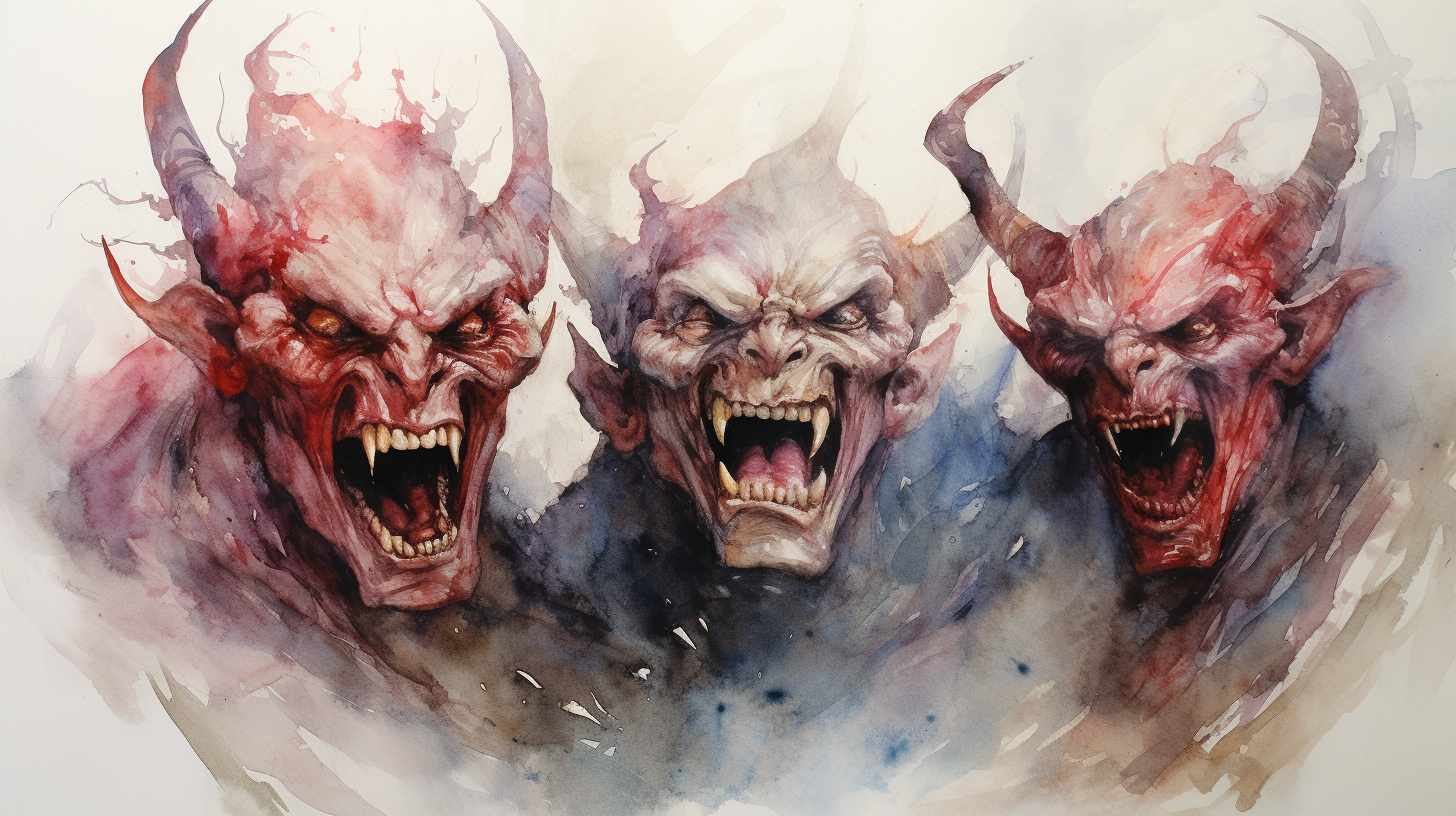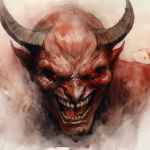What Does It Mean to Dream About a Demon? Unravelling the Dark Symbols in Your Sleep
Dreams can take us to serene, peaceful places — but they can also plunge us into frightening, shadowy territories. One of the most unnerving symbols that can appear in our sleep is a demon. If you’ve recently had a dream about a demon, you’re likely waking up with lingering fear or confusion. But don’t worry — these types of dreams are more common than you might think and often hold deeper psychological and emotional meanings rather than literal ones.
In this blog post, we’ll explore the most common interpretations behind dreaming of demons, the emotional triggers that may lead to such dreams, and how to process the experience for personal insight.
Why Do We Dream About Demons?
The image of a demon in a dream can be deeply symbolic, often connected to inner conflict, emotional distress, unresolved trauma, or feelings of guilt and fear. These figures may represent parts of ourselves or external forces in our waking lives that we struggle with.
A demon dream rarely suggests anything supernatural — instead, it can highlight the darker aspects of our subconscious mind that we may be ignoring, suppressing or battling with.
Common Interpretations of Demon Dreams
1. Inner Conflict or Guilt
A demon in your dream may symbolise a part of yourself that you’re in conflict with — such as a bad habit, past mistake, or unkind behaviour. If you’re feeling guilty about something or trying to repress certain feelings, a demon could emerge as a manifestation of that inner turmoil.
2. Fear of Losing Control
Demons can also appear when you feel overwhelmed or powerless in waking life. This might be due to stress, toxic relationships, addiction, or a situation you can’t seem to escape. The demon becomes a symbol of the struggle to reclaim control or to resist negative influences.
3. Suppressed Anger or Resentment
If you’ve been holding in anger or emotional pain, particularly from childhood or unresolved trauma, your dream may give form to those emotions through a demonic figure. These dreams can act as a release valve, allowing hidden tensions to rise to the surface where they can be acknowledged.
4. Spiritual Disconnection or Moral Crisis
For some, dreaming of demons can represent a loss of spiritual grounding or a fear of doing something morally wrong. If you’re questioning your values, direction, or purpose, this kind of dream may indicate a deep inner search for clarity or redemption.
Scenarios in Demon Dreams and Their Meanings
Being Chased by a Demon
This often reflects avoidance. You may be running from something in your waking life — whether it’s a difficult truth, a decision you don’t want to make, or emotions you’re trying not to feel.
Fighting a Demon
Dreams involving a battle with a demon usually represent inner strength and the fight to overcome challenges. It may point to a current struggle in your life where you are trying to stand your ground against fear, temptation, or negativity.
Possession or Transformation
If you dream of being possessed by a demon or transforming into one, it could indicate that you feel consumed by anger, anxiety, or negative behaviour. It might be a sign to reflect on how those feelings are influencing your actions or relationships.
Talking to a Demon
While unsettling, talking to a demon in your dream may symbolise confronting a fear or facing a shadow aspect of yourself. It suggests a step towards understanding and integrating difficult emotions rather than avoiding them.
Psychological Perspectives on Demon Dreams
From a psychological standpoint, demons in dreams can be linked to what Carl Jung referred to as the “shadow self” — the parts of our personality that we hide, repress, or deny. These parts often show up in dreams as frightening figures until we acknowledge them.
Dreaming about a demon might also be connected to anxiety disorders, post-traumatic stress, or even sleep paralysis — where the mind is conscious while the body is asleep, often resulting in terrifying dream-like hallucinations involving dark entities.
Cultural and Symbolic Meanings of Demons in Dreams
Across different cultures, demons have long been used as symbols of temptation, evil, chaos, or punishment. In dreams, they often take on these symbolic roles, especially during times of personal crisis, doubt, or moral questioning.
However, not all demon dreams are purely negative. Some interpretations suggest that dreaming of a demon can also signal personal growth — a breaking point where you face and conquer your fears or emotional burdens.
What to Do After a Dream About a Demon
- Write It Down: Record as much detail as you can. The setting, feelings, and actions in the dream can offer clues to its meaning.
- Reflect Honestly: Are there any unresolved emotions or situations in your life that mirror the themes of your dream?
- Practice Grounding Techniques: If the dream was distressing, grounding yourself through breathwork, journaling, or mindfulness can help you release fear.
- Seek Support: If demon dreams are recurring or emotionally disturbing, talking to a mental health professional can be a helpful step toward deeper understanding.
Final Thoughts
Dreaming about demons can be frightening, but such dreams often arise when your subconscious mind is working through emotional pain, inner conflict, or unresolved issues. Instead of fearing the symbolism, try to understand it. A demon dream may be your mind’s way of urging you to face your shadow, make peace with yourself, and reclaim your power.
When approached with curiosity and compassion, even the darkest dreams can bring valuable insight and lead to profound personal growth.



